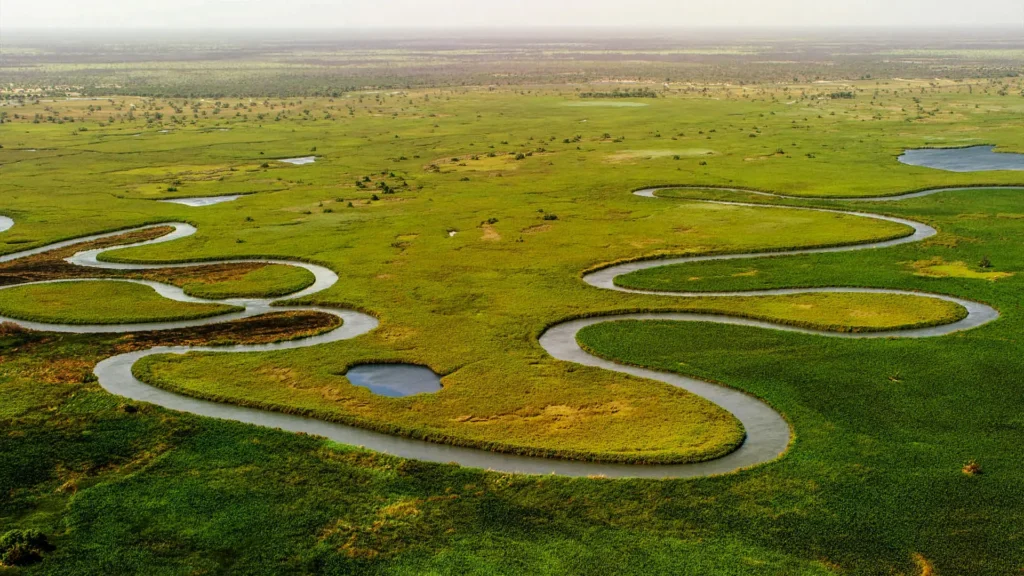
The Okavango Delta, a vast inland delta in Botswana, stands as one of the most biodiverse regions in Africa. This natural wonder supports an incredible array of wildlife and is celebrated as a UNESCO World Heritage site, drawing researchers, conservationists, and tourists from around the globe.
Spanning approximately 15,000 square kilometers during the peak of the flood season, the Okavango Delta is a unique ecosystem where the Okavango River fans out into the Kalahari Desert, creating a lush, green oasis teeming with life. This seasonal flooding supports an array of habitats, from permanent marshlands to seasonal floodplains, which host a rich diversity of species.
The delta is home to large populations of African elephants, lions, leopards, cheetahs, and the critically endangered African wild dogs. Its waterways and wetlands provide a haven for hippos, crocodiles, and an astonishing variety of bird species, including the African fish eagle, Pel’s fishing owl, and the colorful carmine bee-eater. The complex network of channels and islands supports diverse plant life, contributing to the overall ecological richness of the region.
Declared a UNESCO World Heritage site in 2014, the Okavango Delta is recognized for its outstanding natural beauty and its role in maintaining biological diversity. The designation helps ensure the conservation of its unique environment, fostering sustainable tourism and safeguarding it from potential threats such as overdevelopment and climate change.
“The Okavango Delta is a shining example of nature’s resilience and beauty,” said Dr. Simon Dube, a leading conservationist working in the region. “Its status as a UNESCO World Heritage site highlights the importance of preserving such extraordinary ecosystems for future generations.”
Tourism in the Okavango Delta is carefully managed to minimize environmental impact. Visitors can experience the delta’s wonders through guided safaris, mokoro (traditional dugout canoe) trips, and eco-friendly lodges that offer a sustainable way to explore the wilderness. These activities not only provide unforgettable experiences but also generate crucial revenue for local communities and conservation efforts.
Efforts to protect the Okavango Delta involve collaboration between the Botswana government, local communities, and international conservation organizations. Initiatives focus on habitat preservation, anti-poaching measures, and promoting sustainable livelihoods for people living in and around the delta.
As global attention increasingly turns towards preserving our planet’s natural treasures, the Okavango Delta serves as a testament to the power of concerted conservation efforts. Its continued protection ensures that this remarkable ecosystem will thrive, maintaining its role as one of Africa’s most vital and vibrant natural habitats.
For more information on visiting the Okavango Delta and supporting its conservation, travellers are encouraged to consult with reputable tour operators and conservation groups dedicated to preserving this irreplaceable ecosystem.




